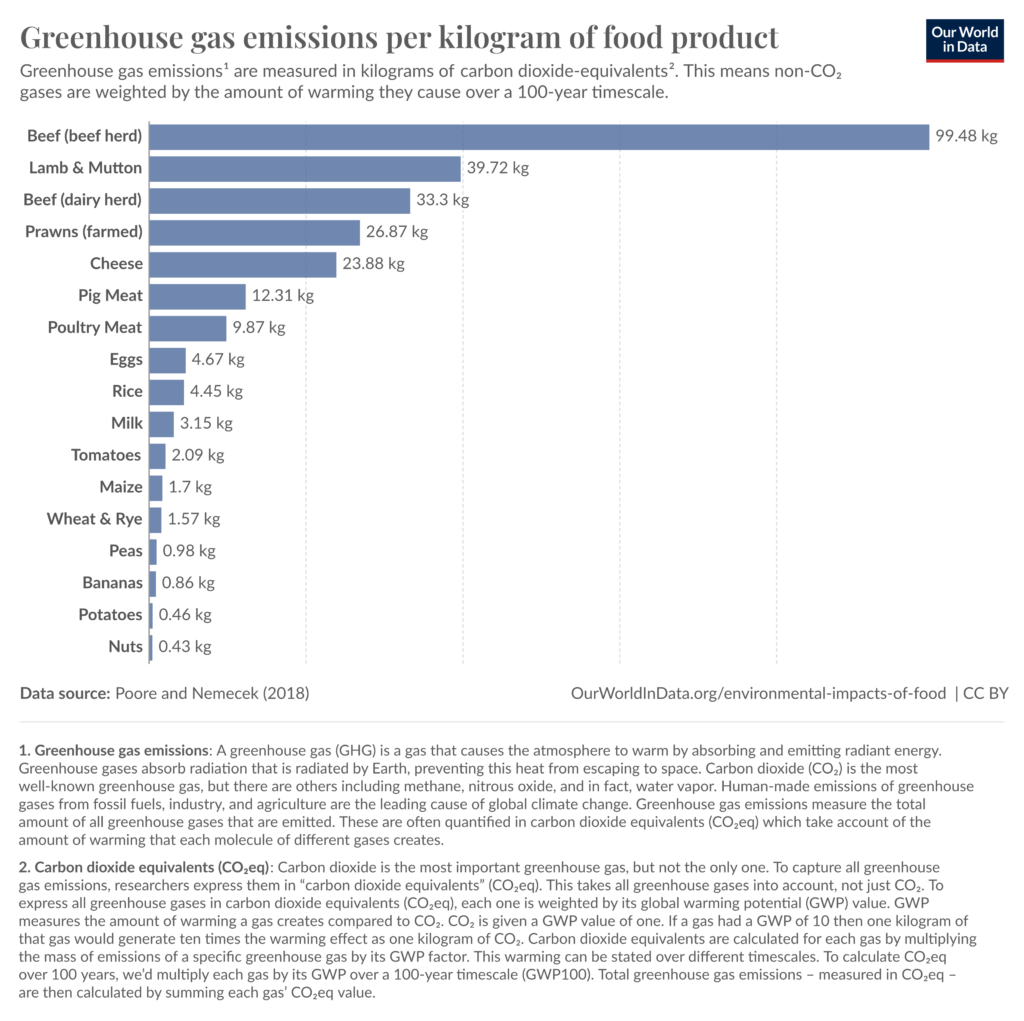Food Science constitutes an integral component of our daily routines. It supplies us with the essential nutrients and energy to operate and flourish. But beyond just being a source of sustenance, food plays a crucial role in our society, economy, and environment. This article will explore the importance of sustenance, its indispensability, and the role of food science and technology in fostering a sustainable future.
1. The Importance of Food
1.1 Nourishment and Health
The most obvious importance of food is its role in nourishing our bodies and promoting good health. Food supplies vital nutrients like carbohydrates, proteins, fats, vitamins, and minerals our bodies require to operate effectively. A diverse and balanced diet is essential to preserving optimal health and preventing illnesses.
1.2 Economic Impact

The food industry holds substantial importance as a contributor to the global economy. It provides employment opportunities for millions of people and generates billions of dollars in revenue. Agriculture, food production, and distribution are all essential components of the food industry, and they play a crucial role in the economic growth of many countries.
1.3 Environmental Impact
Producing and consuming food also dramatically affects the environment. Agricultural activities contribute to greenhouse gas emissions, while food wastage represents a notable proportion of landfill contents.
Implementing sustainable farming methods and minimizing food waste are imperative steps in alleviating the environmental repercussions associated with food production.
Learn more by clicking here.

As indicated by the Our World in Data Website, food production significantly contributes to environmental impacts, encompassing land and water usage as well as climate change effects. It is incumbent upon us to cultivate a sustainable world for future generations. Transitioning to a plant-based diet is crucial for sustainability and curbing greenhouse gas emissions. The following data illustrates the environmental impact of meat consumption:

2. Why Do We Need Food?
2.1 Energy and Nutrients
As mentioned, food provides the necessary energy and nutrients to function and thrive. Our bodies require specific calories and nutrients to carry out essential functions such as breathing, digestion, and movement. Devoid of sustenance, our bodies would lack the energy and resources necessary for vital functions, ultimately resulting in malnutrition and mortality.
2.2 Growth and Development

Food is especially crucial for children and adolescents as they are still growing and developing. Proper physical and cognitive growth requires sufficient nutrition. Malnutrition during these pivotal periods can impair growth, cognitive deficits, and other health complications.
2.3 Maintaining Good Health
Eating a balanced and varied diet is crucial for maintaining good health and preventing diseases. Certain foods contain specific nutrients essential for our bodies to function correctly. For example, calcium is necessary for strong bones, and vitamin C helps boost our immune system. Insufficient intake of these essential nutrients can result in health conditions such as osteoporosis and compromised immune function.
2.4 Social and Cultural Significance

Food is not just about nourishment; it also plays a significant role in our social and cultural lives. Sharing a meal with others can bring people together and strengthen relationships. Food also plays a role in cultural traditions and celebrations, making it an essential part of our social and cultural identities.
3. The Role of Food Science and Technology
3.1 Food Sustainability
One of the foremost dilemmas confronting the food industry is food sustainability. Given the expanding global populace and finite resources, devising methods for the sustainable production and distribution of food is paramount. Food science and technology are crucial in developing sustainable food production methods, such as vertical farming and plant-based meat alternatives.
3.2 Food Product Development

Food science and technology are crucial in developing new and innovative food products. Due to evolving consumer inclinations and dietary constraints, an ongoing need exists for novel and enhanced food offerings. Food scientists and technologists work to create new products that are delicious but also nutritious and sustainable.
Discover the detailed process of product development for a new food item by clicking here.
3.3 Food Safety and Quality
Food scientists and technologists endeavour to ascertain food items’ safety and adherence to quality standards. Employing diverse methodologies and technologies, they scrutinize and oversee food products throughout the entire production cycle, from cultivation to consumption, to guarantee their exemption from harmful contaminants and compliance with regulatory directives.
3.4 Reducing Food Waste

Food waste is a significant issue in the food industry, with an estimated one-third of all food produced globally going to waste. The field of food science and technology has the potential to mitigate food wastage through the innovation of novel preservation methodologies like freezing and canning, as well as the utilization of food by-products to develop new products, thereby minimizing waste.
FareShare is a UK-based charity organization dedicated to fighting hunger and food waste. They work to redistribute surplus food from the food industry to charities and community groups across the country, ensuring that nutritious meals reach vulnerable individuals and families. Their mission is to tackle food poverty and reduce food waste by providing support to those in need while promoting sustainability in the food industry.
Discover tips for minimizing food waste by clicking here.
3.5 Developing a Sustainable Future

The importance of food and the role of food science and technology in developing a sustainable future cannot be overstated. Given the burgeoning global population and finite resources, devising sustainable food production and distribution strategies is imperative.
Food science and technology can help achieve food sustainability by developing new and innovative food production methods, reducing food waste, and creating nutritious and sustainable food products.
4. Conclusion
In conclusion, food is not just about nourishment; it plays a crucial role in our society, economy, and environment. It is essential for our health, social and cultural lives, and economic growth. However, with a growing global population and limited resources, finding ways to produce and distribute food sustainably is crucial. Food science and technology are essential to achieving this goal and developing a sustainable future.
Explore the finest choices for sustaining a nutritious diet by clicking here.

